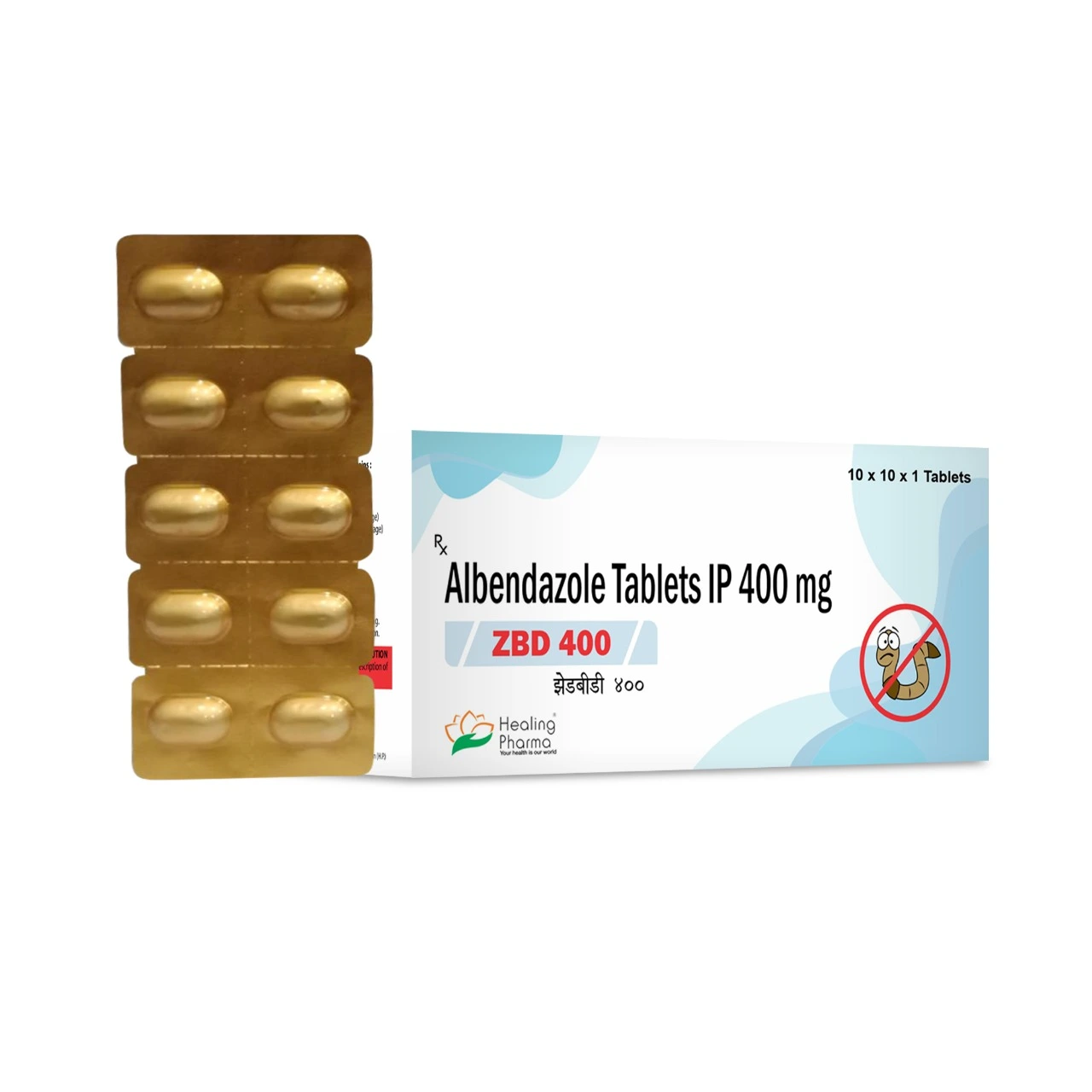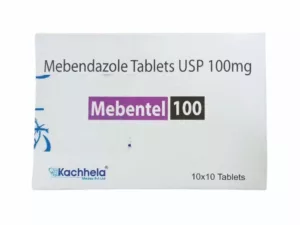“Albendazole 400 mg: Uses, Dosage, Side Effects & Deworming Treatment Guide”
🔬 What is Albendazole 400 mg?
Albendazole 400 mg is a broad-spectrum anthelmintic (anti-parasitic) medication used to treat a wide variety of intestinal and tissue parasitic worm infections. It works by preventing the worms from absorbing essential nutrients, leading to their eventual death. It is effective against both larval and adult stages of parasites.
💊 Composition
- Active Ingredient: Albendazole 400 mg
- Form: Oral tablet (may be chewable or swallowed whole)
- Brand Names: Albenza, Zentel, Eskazole, Wormin, among others.
⚙️ Mechanism of Action
Albendazole inhibits the polymerization of tubulin into microtubules in the intestinal cells of parasites. This disrupts their ability to absorb glucose, leading to energy depletion, immobilization, and eventually death of the parasite.
✅ Uses of Albendazole 400 mg
1. Treatment of Intestinal Worm Infections
- Roundworms (Ascaris lumbricoides)
- Pinworms (Enterobius vermicularis)
- Hookworms (Ancylostoma duodenale, Necator americanus)
- Whipworms (Trichuris trichiura)
- Tapeworms (Taenia spp.)
2. Treatment of Tissue Parasitic Infections
- Neurocysticercosis: Caused by larval cysts of Taenia solium (pork tapeworm) in the brain.
- Hydatid disease (Echinococcosis): Caused by the tapeworm Echinococcus granulosus in the liver or lungs.
- Strongyloidiasis and Trichinosis (when prescribed with other medications)
3. Preventive Deworming
- In mass deworming campaigns (e.g., in schools or public health initiatives) to prevent parasitic infections in communities.
🧪 Dosage and Administration
- For common intestinal worms:
👉 400 mg once (single dose)
👉 Repeat after 2–3 weeks if re-infection risk is high. - 15 mg/kg/day in 2 divided doses, for 8–30 days, depending on severity.
- 15 mg/kg/day in 2 doses for 28 days, followed by 14 days off.
👉 Usually given in 3 cycles.
🔸 Administration Tips:
- Can be taken with food to improve absorption, especially fatty meals.
- Chewable tablets should be chewed thoroughly before swallowing.
- Always follow physician’s instructions for long-term treatment cases.
⚠️ Precautions and Warnings
- Pregnancy: Albendazole is not recommended during the first trimester. Use only if prescribed after risk-benefit analysis.
- Breastfeeding: Should be used with caution. Short-term single-dose treatments are generally safe.
- Liver disease: Use with caution. Liver function tests should be monitored during prolonged therapy.
- Bone marrow suppression: Rare, but serious. Blood counts should be monitored during long-term treatment.
⚕️ Possible Side Effects
- Headache
- Nausea
- Abdominal pain
- Dizziness
- Elevated liver enzymes
- Reversible hair loss
- Fever
- Rash
- Vomiting
- Bone marrow suppression (low white/red blood cells)
- Hepatitis or liver inflammation
- Allergic reactions: rash, swelling, difficulty breathing
- Neurological symptoms (especially in neurocysticercosis): seizures, increased intracranial pressure
🌍 Availability and Legal Status
- Over-the-counter (OTC) in some countries for basic deworming.
- Prescription-only in others, especially for tissue infections.
- Used widely by WHO and other health organizations in mass deworming programs.
🧼 Important Tips for Deworming Success
- Treat entire households in cases of pinworms to prevent reinfection.
- Practice good personal hygiene: wash hands, clean under fingernails.
- Clean bedding, toilets, and clothes thoroughly after treatment.
- In children, repeat doses may be necessary as advised by a doctor.





Reviews
There are no reviews yet.